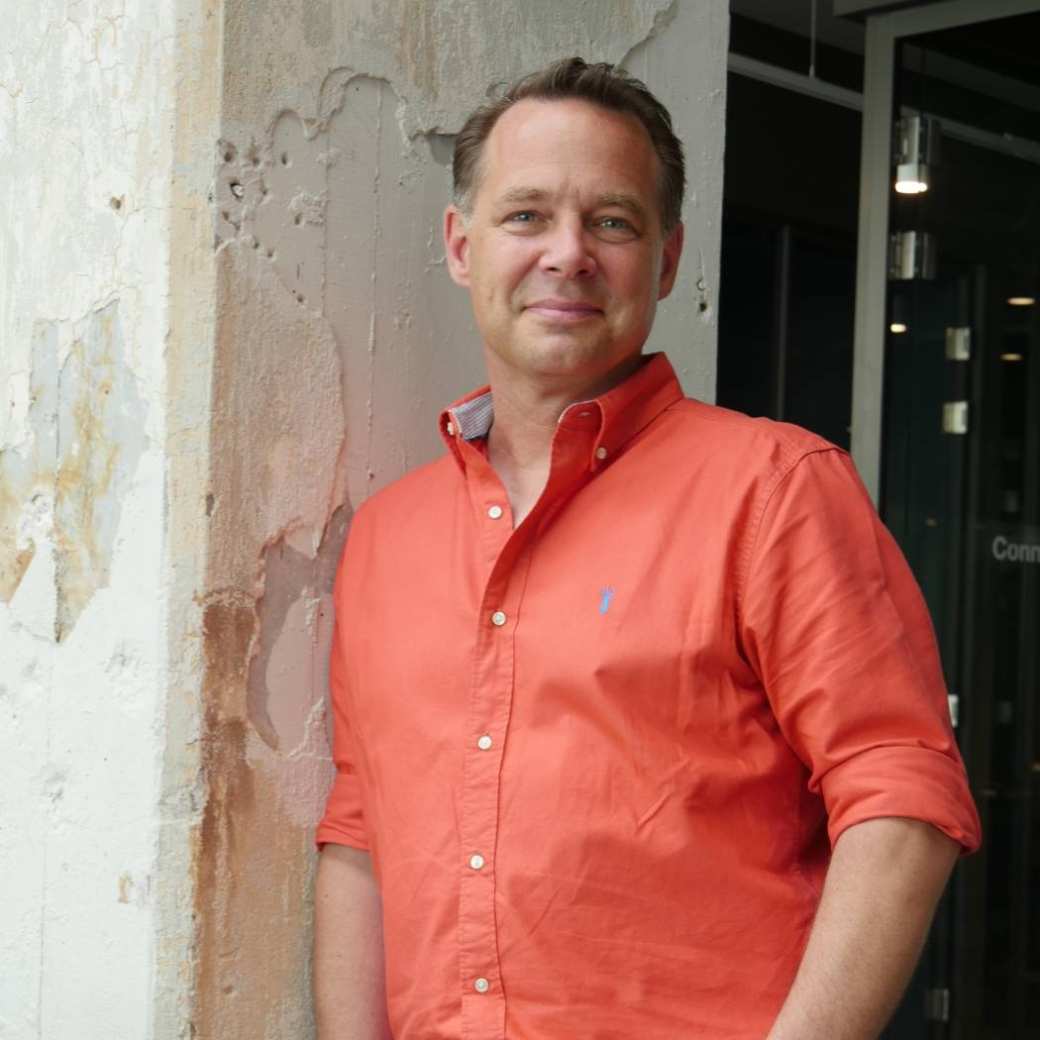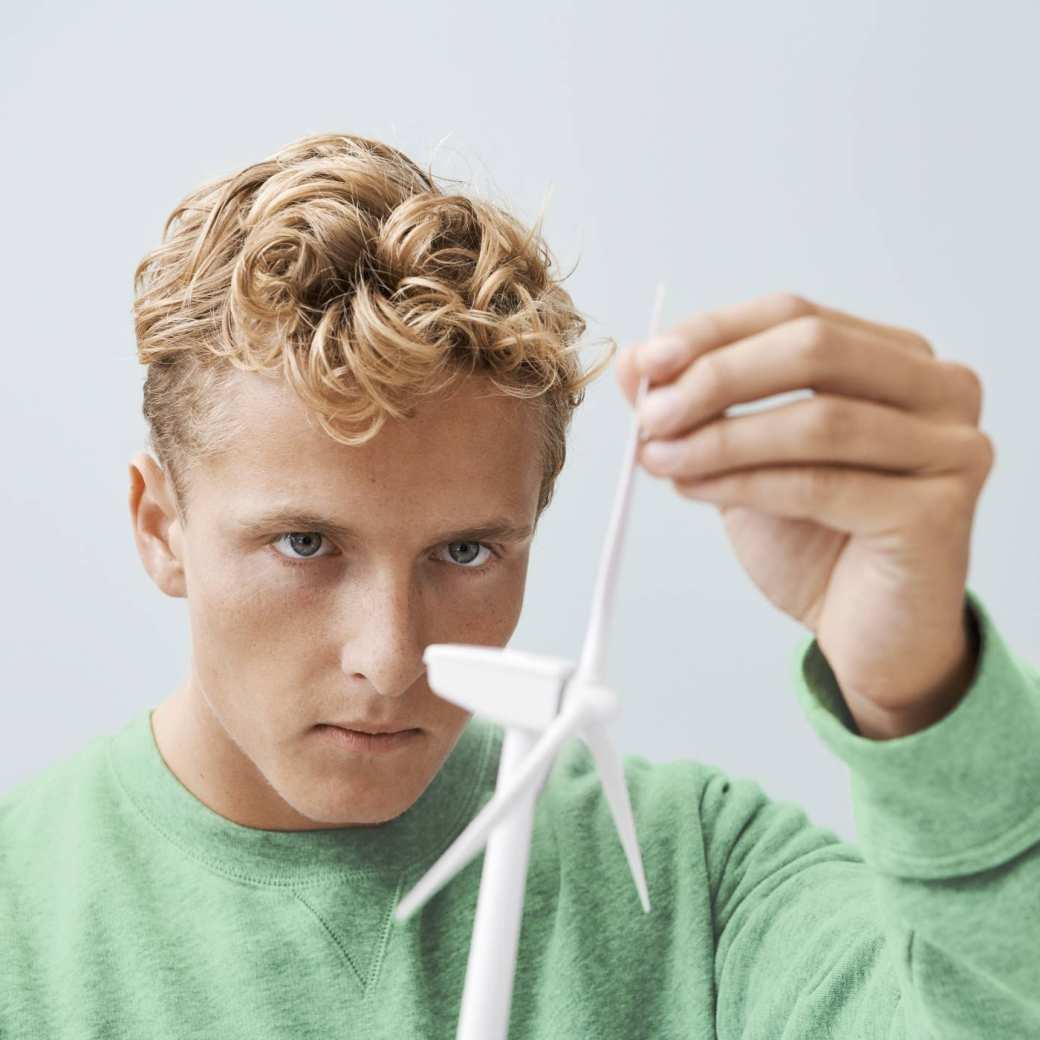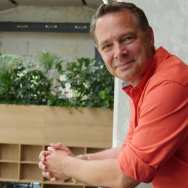HAN University moves in with Connectr with a clear vision for the future

HAN University of Applied Sciences moved into Connectr Energy Innovation on 1 February 2024, where they will work together on energy transition. With what vision?
A historic moment for HAN University of Applied Sciences location Arnhem, as Connectr has been under construction for a few years. HAN's Erik Folgering talks about HAN@Connectr's vision for the coming years.
Naturally, there is some tension with Erik, who, as manager of Innovation in Learning and Development, has been closely involved in the creation of Connectr. After all, the HAN is a co-initiator of Connectr at the Industriepark Kleefse Waard (IPKW), where the already established hybrid learning environments (Mobility Innovation Center, Powerlab and H2Lab) are located, and where the Biobased Lab and the master's in Circular Economy will also move into the Innovation lab at IPKW as of February. "Then we are really going to work together, and that is quite challenging," finds Erik.
Other form of education
Why challenging? "It is quite a leap we are making. We will be teaching in a place other than the college campus. Such a new environment also involves a new form of teaching, such as challenge-based learning. That form is responsive and transformative, allowing a much better response to developments in the region. And not only with education: the HAN University has strong professorships doing practice-oriented research from energy transition to educational development - it all comes together in Connectr."
Major knowledge institution facing major challenge
One of the keys to Connectr's success is that all kinds of parties are close together. "To really tackle social challenges around the energy transition well, it is essential to tackle them together. So with businesses, government and society. And also with each other: our large university of applied sciences is very strong in the education and research we offer. We still do a lot of that side by side. In Connectr, it can be done physically with each other. In this way we can make use of the strength of the large knowledge institution that HAN University is and of the innovative region we are in, to accelerate the energy transition together."
Not by chance at coffee machine
The aim is for all programmes in the Sustainable Energy & Environment (SEE) domain of that large knowledge institution to work together within Connectr. "Students, researchers and lecturers from different programmes from different parts of the HAN organisation will sit close together and meet at the coffee machine. You can of course leave that to chance, but I want to actively encourage that in our education and research programming. How can you really make an impact together?"

Joining forces
'Together' is a key word. Energy transition is a challenge that transcends individual disciplines: technological innovations alone are not the solution. You also need to look at social systems and economic aspects. "You have to approach it integrally to arrive at a good 'treatment'. This is difficult, because while you have the same higher goal within Connectr, there are also all different drivers. Joining those forces well in the region is a challenge, but that is also what Connectr is for."
Professionals sometimes hesitate to go back to school; continuing your development in the Connectr environment keeps you connected to practice.
Sometimes disruptive, but always with a plan
So how exactly will that happen in Connectr? "By simply getting to work with each other. The urgency for tackling the climate crisis is high. We need to find new ways in how to handle it smartly together. This may - and should - sometimes be disruptive, but always with a plan. We in the region are strong in charging infrastructure, good with the hydrogen cluster at the IPKW and have a lot of knowledge and experience in developing Smart Energy Hubs; we are distinctive in that."
Strategic goals
Erik is one of the architects of the vision for HAN@Connectr. How exactly do you arrive at such a vision? "We work with a number of strategic goals, such as the HAN University 'Charting Our Course', the Connectr business plan, a task in Lifelong Development, the development of responsive education and connection with the region of our practice-oriented research. HAN University's course picture talks about tackling societal challenges together, among other things. With Connectr, we have a wonderful opportunity to realise that."
HAN University's course statement states that we tackle societal challenges together. With HAN@Connectr, we have a wonderful opportunity to realise that.
Conscience of Connectr
The vision speaks of HAN University as the 'conscience of Connectr'. Erik explains: "As HAN University, we have the opportunity in Connectr to contribute to accelerated upscaling and application of technological innovations. The province also likes to see that, and it's good for business. We also have the opportunity to oversee the great societal challenge of the energy transition in its full breadth with our focus on Clean - SEE. We look at the transition from a technical, legal, economic and social perspective. That is the strength of a large, practice-oriented knowledge institution."
Planetary perspective
An innovation programme, an innovation lab, shared facilities, responsive education, meeting each other, the commitment to lifelong development: Connectr ís quite something. What is HAN University's ideal vision for the future? "That we can offer flexible, responsive and transformative development opportunities and practice-based research. Professionals sometimes hesitate to go back to school: developing further in the Connectr environment keeps you connected to practice."
Moreover, Erik likes to see that you can put everything you learn in Connectr into a planetary perspective: "For example, what is the effect of my technological innovation on the environment? Does it contribute to a cleaner planet? As a result, our students really feel connected to Connectr and to their future role in society. They are already saying: 'This is what I studied engineering for!'"
Clean together
Keeping our world livable requires reducing CO2. This can be done big, but also small - in our region. We are working together on alternative, cleaner energy sources and an economy in which we reuse much more. This requires cooperation, and that is a core of Focus Clean - Sustainable Energy and Environment (SEE). A big, broad challenge that prepares us and the region for a sustainable economy with future-proof professionals.


